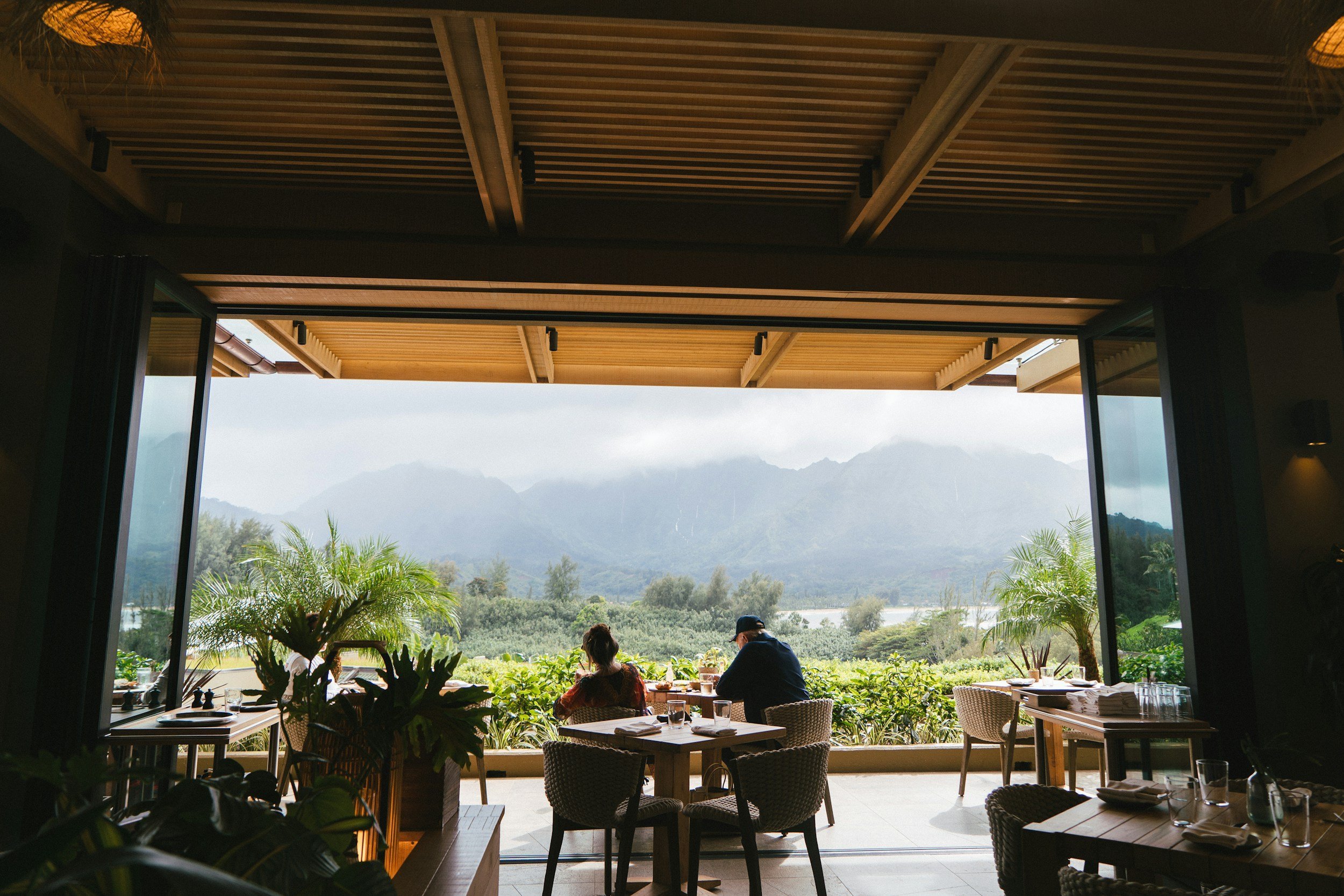Emerging Tech Shaping the Travel and Hospitality Industry in 2025
As we navigate through 2025, the travel and hospitality industry is undergoing a technological renaissance. Innovations in travel and hospitality...
4 min read
The Travel Foundry Jan 9, 2025 10:30:00 AM

As we step into 2025, the travel and hospitality industry is experiencing transformative shifts. Understanding these hospitality marketing trends is crucial for marketing professionals aiming to stay ahead. Here’s an in-depth look at the key developments that will shape the future of travel marketing.

Solo travel is becoming more mainstream than ever before. According to a recent Skyscanner survey, 62% of U.S. travelers plan to take two to five solo trips this year (Skyscanner, 2025). Solo travelers are not only seeking personal exploration but also tailored experiences that match their unique interests and needs.
Key Marketing Opportunity: Hotels and destinations are increasingly offering packages that cater specifically to solo travelers. These experiences emphasize safety, connection, and personalized itineraries. For instance, brands like Selina are tapping into this trend by offering co-living spaces designed to provide a sense of community for independent travelers.

Wellness tourism is taking on a new dimension. While yoga retreats and spa vacations were once the pinnacle, 2025 is all about a holistic approach. According to Accor, 'athletic adventures' are one of the most significant travel trends, with travelers seeking active, health-focused journeys that go beyond the usual wellness offerings (Accor, 2025). From mountain trekking to healthy culinary experiences, the wellness traveler of today is looking for more than just a detox.
Key Marketing Opportunity: Destinations that offer fitness challenges, cultural immersion, and mind-body experiences will stand out. Think of Wellness by the Sea in Florida, which combines beach yoga with marine biology excursions for a truly balanced experience.
Sustainability continues to be a driving force in travel decisions as we move into 2025. With 83% of travelers emphasizing the importance of sustainable travel (Radical Storage, 2024), it’s clear that eco-conscious practices are no longer just a preference—they’re an expectation. From choosing greener accommodations to supporting local communities, travelers are reshaping the industry with their demand for more mindful and responsible tourism options.
Key Marketing Opportunity: Brands should promote eco-friendly practices, such as reducing plastic usage, offering carbon-neutral stays, or collaborating with local environmental organizations. For instance, Six Senses Hotels has committed to reducing its carbon footprint, which resonates with today’s sustainable traveler.
In 2025, artificial intelligence will continue to transform the guest experience. Hotels are leveraging AI to offer hyper-personalized services, from tailored room preferences to customized itineraries. As highlighted by Mews, AI can analyze vast amounts of data to help hotels deliver experiences that feel both unique and seamless (Mews, 2025).
Key Marketing Opportunity: Marketers should consider how AI can help personalize the customer journey. For example, predictive algorithms can suggest experiences based on past stays, making each guest feel as though the brand truly understands their preferences.
The hospitality investment landscape is evolving, with a rise in mid-sized hotel transactions, valued between $50 million and $150 million. As highlighted by Hotel Dive, these deals are becoming more frequent as investors seek stability in an unpredictable market (Hotel Dive, 2025). This opens up new marketing opportunities for mid-range properties that are looking to reach an even wider audience.
Key Marketing Opportunity: Mid-sized hotels should focus on highlighting their unique value proposition, offering high-quality experiences at more accessible price points. This could include offering tailored packages that appeal to both solo travelers and families.
Social commerce is taking off, with platforms like TikTok and Instagram emerging as major booking channels. By 2025, it’s expected that 17% of all digital transactions will occur through social platforms, as reported by Statista (Statista, 2025).
Key Marketing Opportunity: Brands should explore how to integrate booking options directly into social media platforms. Some brands like Airbnb have done this successfully, allowing users to book directly from Instagram posts. This frictionless approach to booking will increase conversions.

Travelers are moving beyond traditional hotel rooms, looking for more unique and personalized accommodations. From glamping to luxury eco-lodges, the options are becoming more diverse. Mews reports that unique accommodations are in demand as travelers seek experiences that are distinct and authentic (Mews, 2025).
Key Marketing Opportunity: Hospitality brands should showcase these diverse lodging types. For example, a glamping experience in the mountains could be marketed to travelers who are looking for adventure but also value comfort. Highlighting these unique offerings can attract a broader range of customers.
 In 2025, the focus is on destinations that offer immersive, one-of-a-kind experiences. According to Airbnb, the most popular travel spots are those that offer a mix of adventure, culture, and relaxation (Airbnb, 2025). For example, Seville, Spain, has become a hotspot for travelers interested in experiencing Holy Week celebrations, while Bad Staffelstein, Germany, is famous for its healing saltwater baths.
In 2025, the focus is on destinations that offer immersive, one-of-a-kind experiences. According to Airbnb, the most popular travel spots are those that offer a mix of adventure, culture, and relaxation (Airbnb, 2025). For example, Seville, Spain, has become a hotspot for travelers interested in experiencing Holy Week celebrations, while Bad Staffelstein, Germany, is famous for its healing saltwater baths.
Key Marketing Opportunity: Marketers should highlight the unique cultural, historical, and natural experiences that destinations offer. For example, promoting exclusive experiences like hot air balloon rides in Cappadocia or culinary tours in Rome can set a destination apart.
While luxury travel remains strong, budget-conscious travelers are increasingly looking for value destinations. According to The Times, destinations like Vietnam, Laos, and Lithuania are gaining popularity due to their rich cultural offerings at lower price points (The Times, 2025).
Key Marketing Opportunity: Highlight destinations that offer both cultural richness and affordability. For instance, marketing a trip to Southeast Asia that includes immersive local experiences without the hefty price tag can attract price-sensitive consumers.
Culinary tourism continues to grow, with travelers seeking out destinations known for their food culture. From Rome's pasta scene to New York's vibrant dining options, food is no longer just an aspect of travel—it’s the reason to travel (Foodbusinessreview, 2025).
Key Marketing Opportunity: Destinations that emphasize food and drink culture—such as cooking classes, street food tours, or exclusive wine tastings—are gaining attention. Food-centric marketing campaigns can entice travelers looking to expand their culinary horizons.

The 2025 travel landscape, shaped by emerging travel trends 2025, is a dynamic intersection of innovation, sustainability, and evolving traveler expectations. For marketers, this means not just keeping up with trends but leveraging them to create meaningful connections and unforgettable experiences. Whether it’s tapping into the rise of solo travel, embracing eco-friendly practices, or personalizing the guest journey with AI, the opportunities to engage with modern travelers are boundless.
At The Travel Foundry, we don’t just adapt to these shifts—we help you lead the way. With a deep understanding of the travel and hospitality space, we design strategies that not only meet today’s demands but also anticipate tomorrow’s needs. Partner with us to navigate the future of travel marketing.

As we navigate through 2025, the travel and hospitality industry is undergoing a technological renaissance. Innovations in travel and hospitality...

The travel and hospitality landscape is undergoing a seismic shift. Millennials (born 1981–1996) and Gen Z (born 1997–2012) have become dominant...